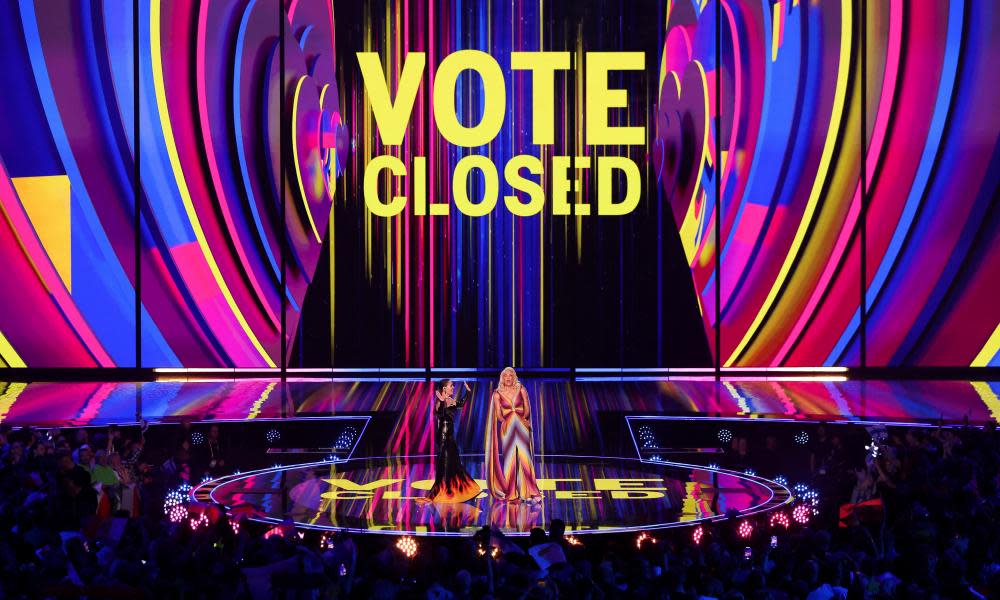Risk of cyber-attack is main Eurovision worry, says BBC executive

The risk of a cyber-attack is the “main worry” for broadcasters staging the Eurovision song contest on behalf of war-torn Ukraine, a BBC executive has said.
Experts from the UK’s National Cyber Security Centre have been drafted in to help thwart any attempts by pro-Russian hackers to sabotage the competition’s public vote on Saturday.
Kate Phillips, the BBC’s director of unscripted programmes, said there was no specific intelligence about an attack but that there were “so many contingency plans” in place if it happened. She said: “I don’t want to say we’re pretty attack-proof but we’ve done everything we can to make sure the event is as secure as possible so people don’t have to worry about that.”
Phillips said the contest would have had high security in any event but the war in Ukraine meant “we have had to up it as much as we possibly can”.
“Cyber-attacks are the main worry because they’re becoming more and more frequent. Most companies seem to have been hacked,” she said. “We’re very conscious that we are open to a cyber-attack but everything we’ve done I think mitigates that.”

The UK is hosting Eurovision for the first time in 25 years after Ukraine, which won last year’s competition, was unable to stage the event because of the Russian invasion.
The BBC is producing the two semi-finals and grand final for a global television audience of more than 160 million people.
Graham Norton will host Saturday’s grand final live from Liverpool’s M&S Bank Arena, alongside the Ted Lasso star Hannah Waddingham, Britain’s Got Talent’s Alesha Dixon and the Ukrainian singer-songwriter Julia Sanina.
Organisers are especially alert to a possible cyber-attack after Italian police thwarted attempts by pro-Russian hackers to disrupt last year’s event in Turin. The hackers targeted performances by Kalush Orchestra, the Ukrainian act that won the contest.
In 2019, the online stream of the Eurovision semi-finals in Israel was hacked to show warnings of a missile strike and images of blasts in the host city, Tel Aviv. The government blamed Hamas.
Phillips said it was the first time in the BBC’s history that it had produced two such big events – the king’s coronation and Eurovision – in the same week. She said security for both was tighter than for any previous national occasions in her television career.
Officials are also alive to the possibility of a stage invasion, as happened in 2017 in Kyiv and the following year in Lisbon.
“If there is an incident, there is an incident, but I think if it happened, it happened because there was nothing we could do about it,” Phillips said.
The BBC has worked with 36 other national broadcasters to produce a spectacle that it hopes will appeal to a worldwide television audience as well as to new viewers in the UK.
She said Norton, whose droll commentary is enjoyed every year by UK viewers, would mention the war in Ukraine but only to explain why the contest was being hosted in Liverpool.
Viewers can expect new twists on old Eurovision traditions such as the flag parade for Saturday night’s grand final. Phillips said: “If you thought you knew Eurovision, think again, because we’re taking everything up a notch.”

 Yahoo News
Yahoo News 
